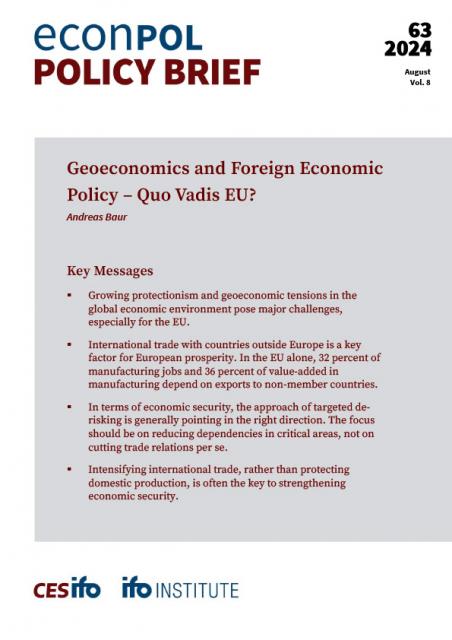Geoeconomics and Foreign Economic Policy – Quo Vadis EU?
Key Messages
- Growing protectionism and geoeconomic tensions in the global economic environment pose major challenges, especially for the EU.
- International trade with countries outside Europe is a key factor for European prosperity. In the EU alone, 32 percent of manufacturing jobs and 36 percent of value-added in manufacturing depend on exports to non-member countries.
- In terms of economic security, the approach of targeted de-risking is generally pointing in the right direction. The focus should be on reducing dependencies in critical areas, not on cutting trade relations per se.
- Intensifying international trade, rather than protecting domestic production, is often the key to strengthening economic security.
Abstract
The global economic environment has changed fundamentally over the past decade. Growing protectionism and geoeconomic tensions pose a major challenge, especially for the EU, whose foundations are based on openness, multilateralism, and cooperation. This policy brief presents four basic propositions on the future direction of the EU's foreign economic policy. In addition to the security implications of economic interdependence, it discusses the role of firms in shaping resilient supply chains, the case for industrial policy in strengthening economic security, and the importance of European unity for geoeconomic competition.
Series
Download
Download EconPol Policy Brief 63762.42 KB
Citation
Andreas Baur, “Geoeconomics and Foreign Economic Policy – Quo Vadis EU?,” EconPol Policy Brief 63, August 2024.
